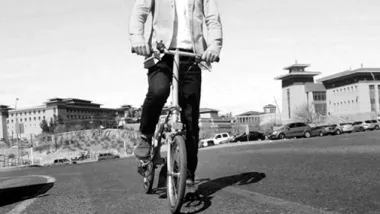If you watched or read the news yesterday, then you likely came across the sentencing of Donte Stallworth. Previously known (maybe) for being an NFL role player, Stallworth will serve a 30 day sentence for hitting and killing a pedestrian named Mario Reyes while driving intoxicated here in Miami Beach. The typical sentence for such an offense in Florida is 4 to 15 years. Stallworth will be released just in time for his NFL training camp. How convenient.
If you watched or read the news yesterday, then you likely came across the sentencing of Donte Stallworth.
Previously known (maybe) for being an NFL role player, Stallworth will serve a 30 day
sentence for hitting and killing a pedestrian named Mario Reyes while driving intoxicated
here in Miami Beach. The typical sentence for such an offense in Florida is 4 to 15 years. Stallworth will be released just in time for his NFL
training camp.
How convenient.
Reactions to the Stallworth sentence are
mixed, running the gamut from satisfaction to outrage, to jaded
assumptions that he is just another NFL bad boy getting a free pass. While you probabaly already know how I feel about the issue, it should be noted that in addition to the 30 day sentence Stallworth's license has been revoked for life and he will serve 1,000 hours of community
service while being under house arrest for
the next two years. He has also agreed to compensate the devastated Reyes family with an undisclosed amount of financial support. All of this, you may say, is a paltry price to pay for irresponsibly taking another's life.
While the Reyes family is reportedly just looking for closure, and not the worst for Stallworth, Livable Street advocates are likely finding the vehicular manslaughter sentence particularly tough to swallow, but also unsurprising. Indeed, lost in the NFL player brou-ha-ha is the story of Mario Reyes, a 59-year old family man who was simply trying to cross the street to catch the bus home after working the night shift. Stallworth, clearly acted with fatal negligence and the sentence doesn't seem to match the severity of the crime.
Yet, NFL player or not, DUI's, hit and runs, and other types of fatal automotive "accidents" are
typically not pursued to the extent that you think they would be. Just read Streetsblog on a weekly basis for a sense of the daily injustices levied against innocent citizens across the country. The media also tends to ignore the humanity of the perpetrators when covering such incidents, instead referring to the vehicle that struck the other car, pedestrian, or immovable object, and not the human behind the wheel. Earlier this spring, David Alpert from the Greater Greater Washington blog summarized this fact by analyzing how media outlets and society use an excessive amount of passive voice when reporting incidents involving motor vehicle crashes, a leading cause of deaths in America at approximately 40,000 a year. David says:
No news story ever began saying, "A person was killed yesterday when he
collided with a bullet moving at high speed in the opposite direction."
Yet that's exactly how news stories about traffic "accidents" often
begin, like this Post story:
Four
people ranging in age from 19 to 21 were killed early yesterday in
Culpeper County, Va., when their car collided with a vehicle that was
going the wrong way, Virginia State Police said.Police said a Chevy Tahoe sport-utility vehicle was driving on the
wrong side of a two-lane stretch of Route 3 when it struck the Toyota
Corolla about 2:50 a.m.
Certainly, the death of Mario Reyes was not fully intentional, but labeling it as an "accident" as many media outlets have and continue to do does not get it right either. After all, Stallworth blew through a red light while Reyes had the right-of-way (in a poorly marked crosswalk along a limited access, high speed vehicular causeway that he had to cross to reach the bus) and killed him. Clearly, this could have easily been avoided by just following the most routine of traffic laws--a difficult accomplishment when your blood alcohol content is .126.

Planetizen Federal Action Tracker
A weekly monitor of how Trump’s orders and actions are impacting planners and planning in America.

Chicago’s Ghost Rails
Just beneath the surface of the modern city lie the remnants of its expansive early 20th-century streetcar system.

Amtrak Cutting Jobs, Funding to High-Speed Rail
The agency plans to cut 10 percent of its workforce and has confirmed it will not fund new high-speed rail projects.

Ohio Forces Data Centers to Prepay for Power
Utilities are calling on states to hold data center operators responsible for new energy demands to prevent leaving consumers on the hook for their bills.

MARTA CEO Steps Down Amid Citizenship Concerns
MARTA’s board announced Thursday that its chief, who is from Canada, is resigning due to questions about his immigration status.

Silicon Valley ‘Bike Superhighway’ Awarded $14M State Grant
A Caltrans grant brings the 10-mile Central Bikeway project connecting Santa Clara and East San Jose closer to fruition.
Urban Design for Planners 1: Software Tools
This six-course series explores essential urban design concepts using open source software and equips planners with the tools they need to participate fully in the urban design process.
Planning for Universal Design
Learn the tools for implementing Universal Design in planning regulations.
Caltrans
City of Fort Worth
Mpact (founded as Rail~Volution)
City of Camden Redevelopment Agency
City of Astoria
City of Portland
City of Laramie






























